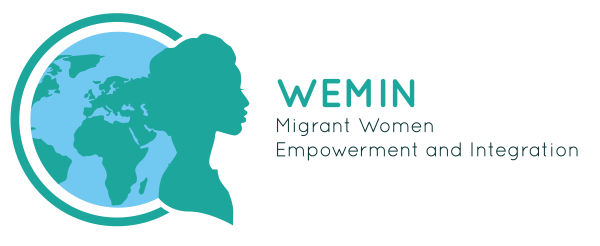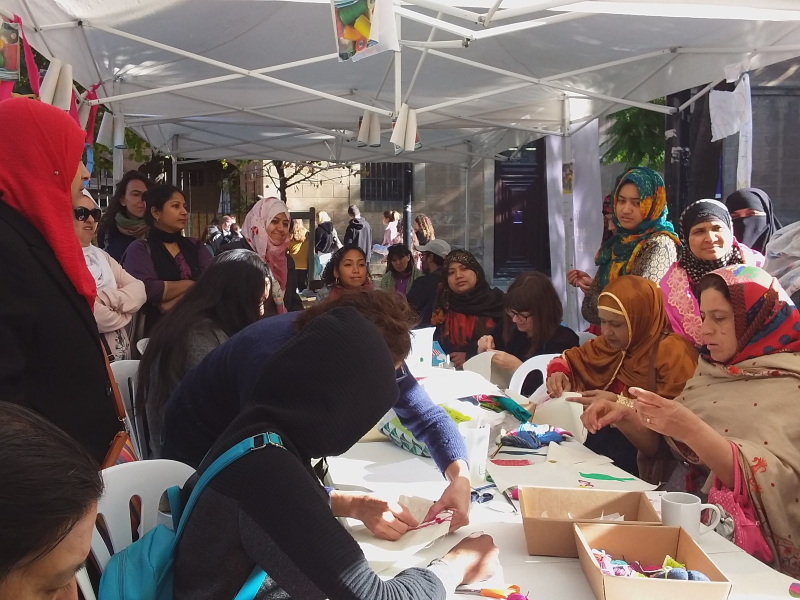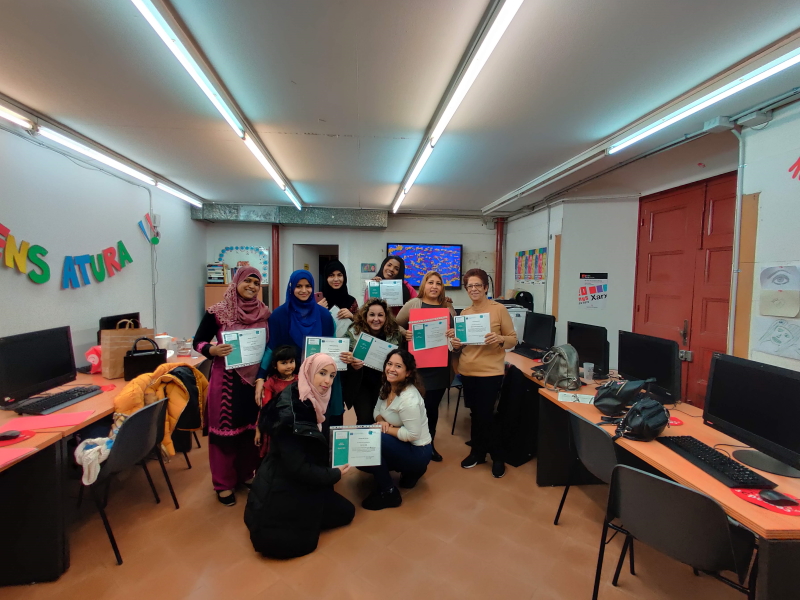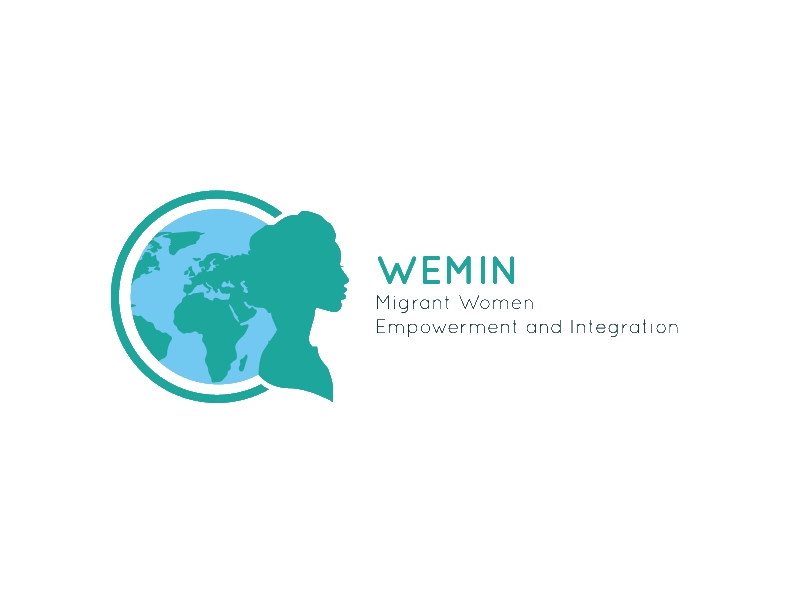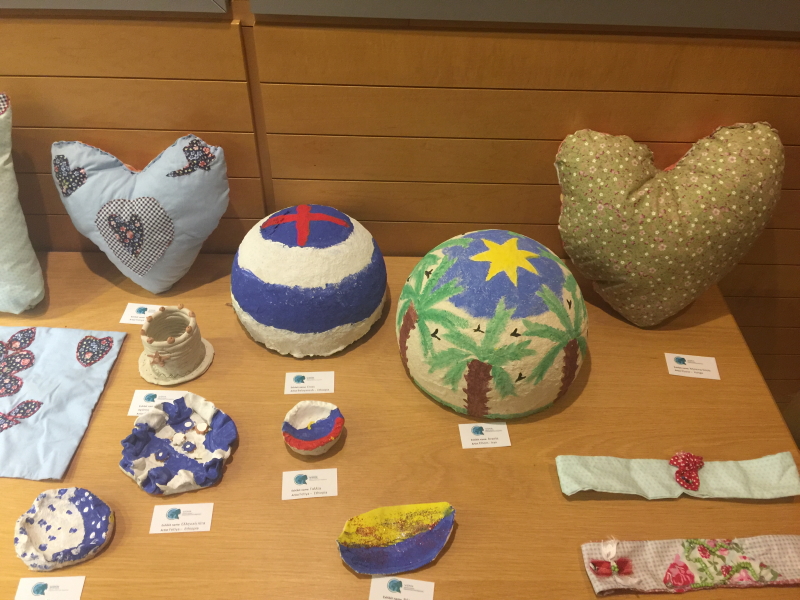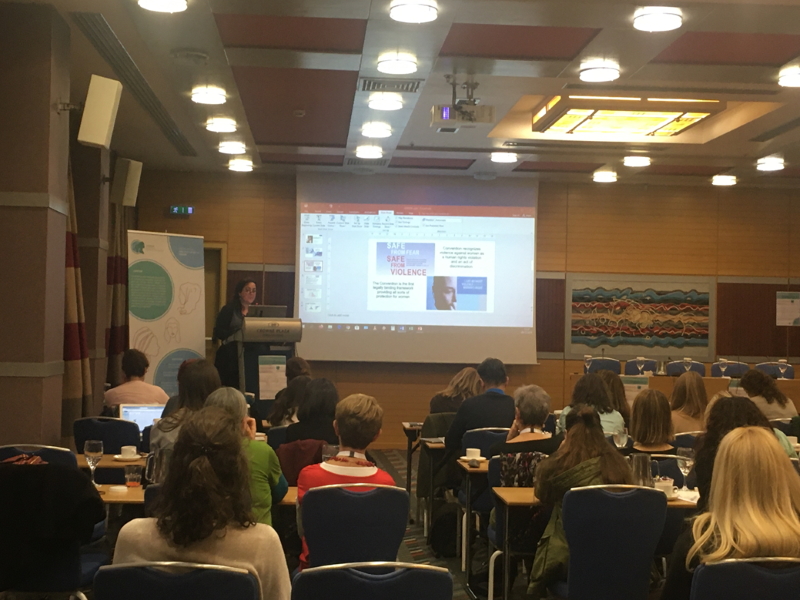
A tapestry of stories around the world
Δεκέμβριος 13, 2019
WEMIN alumni in Stuttgart
Δεκέμβριος 15, 2019Wemin: a great challenge at all levels
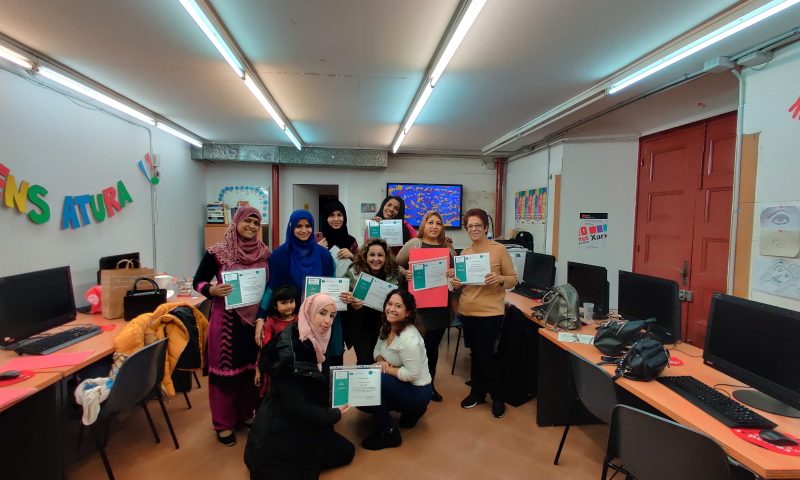
Two years of project have given us enormous professional enrichment. Every day has represented a challenge: at the local level, with our community; internationally, with the project partner partners. A continuous learning, having to overcome our own limits, to go even further. And a pleasure.
Without a doubt, what has been most difficult for us is to reach the target group of this action. We have made a lot of dissemination, taking into account that Colectic is not a local reference entity when it comes to working with women (yes, in terms of working with migrated people, but our experience supports us mainly in a male environment)
Women who have participated in the actions carried out by Colectic are not used to staying in the training classroom for many hours, which has led us to have to plan very well the training actions and give them a lot of dynamism. In addition, the reconciliation of the actions with the personal needs of the participants has proved extremely difficult: the need to give due care and attention to the children, the reconciliation with school schedules and other family obligations have had a full impact on the project.
To respond to the need for family reconciliation, we have developed two types of actions: on the one hand, we have reached an agreement with a friendly entity in the neighborhood, Casal dels Infants, which offers a childcare service. Some of the women have brought their out-of-school children to this service in order to attend our classes. However, not all women have relied on this service, so from the beginning we have had to offer a second strategy: a “baby-friendly” space that has allowed the presence of the little ones during classes.
During the development of the “informatics, language and local culture” training action we have seen how the participants have been generating more linguistic autonomy and a better knowledge and management of the local and European culture. They have also acquired technological skills that, without a doubt, have opened new learning horizons for them.
The development of the mentoring and empowerment sessions has been key for some of the participants, who have been able to deepen their knowledge on those issues on which, during the course, they had expressed the need to deepen. We decided to approach this work in the last part of the project to be able to customize the itineraries and offer concrete and customized solutions to general problems.
We have used the mentoring spaces to bring women participants to various local services and entities, through participation in public spaces and resources (museums, activities carried out jointly with other local entities, resources to find work, etc.) .
On the other hand, empowerment actions have allowed us to explore specific information needs and the exploration of general resources; We have focused on general issues (child care, food, female health, housing search, work, etc.) in the hands of experts and referents in each of the topics, thus opening communication channels and group work that will undoubtedly have an impact on the future.
Textile activities (creative workshops) have allowed us to enjoy an atmosphere of complicity, a space to share and communicate through manual work, although we have not had a significant impact on women in the local community. The participants have managed to express themselves (their ideas, desires, demands) through their creativity, connect with people from other places and break the communication barriers that still exist. When language is not shared, sharing the creation of a specific job is an interesting goal. They have been meetings of intense work that have allowed to flourish what women have in common: desires and rights. For all participants, publicly expose their work during the events organized around the international day against sexist violence (either in the local event on the 25N in the morning, or in the great general demonstration of the city of Barcelona, the 25N by late) has been a source of pride. It has also been very interesting to note how proud they have been during the two weeks that the works have been exhibited on the walls of the old School of Arts of the City of Barcelona.
During these two years, we have worked with 160 different women with different intensity, adapting to their interests, needs and abilities. It has not been easy to implement all the elements of the project, which is really ambitious, but we are proud of the work done and also its consequences. During this time, Colectic has been positioning itself as a reference entity for working with and for migrated and refugee women, both for women and for other entities in the city of Barcelona. A learning, a challenge, that Colectic will not forget, because although the Wemin project ends now, its objectives and goals, and our energies to address them, persist.
